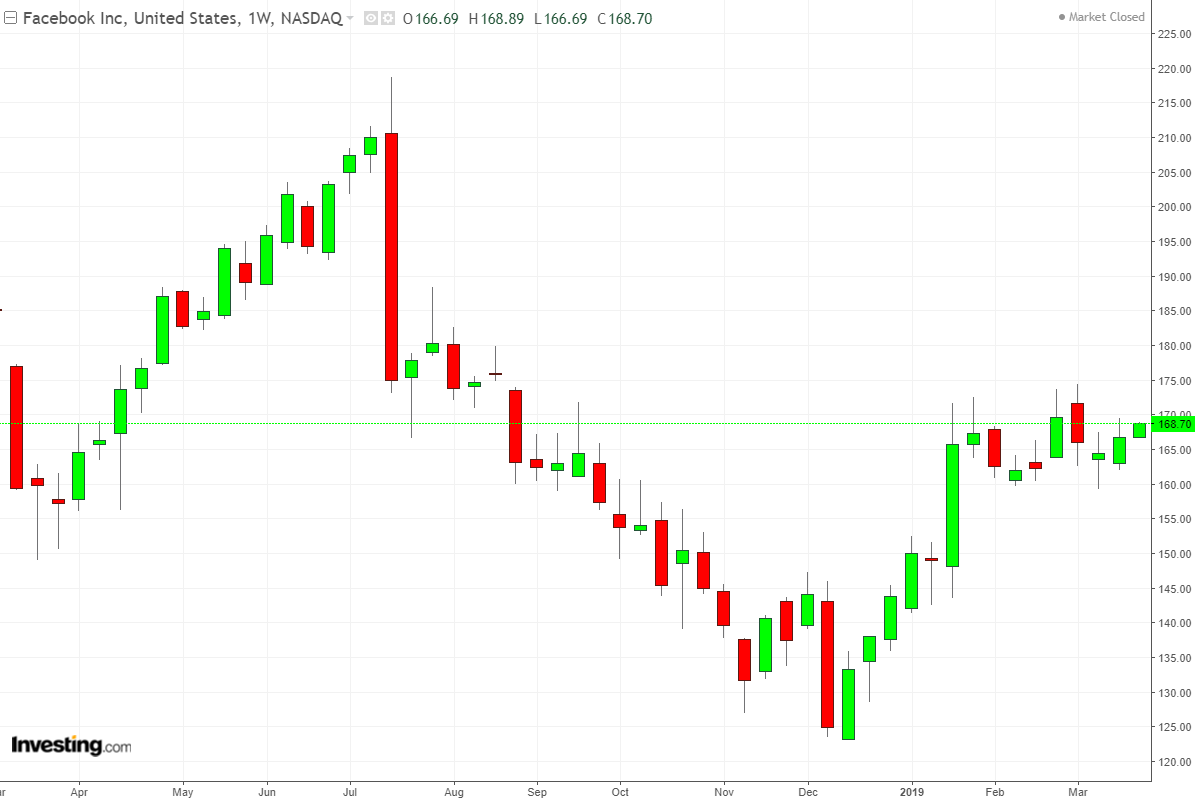On Saturday, the Washington Post published an op-ed titled The Internet Needs New Rules. Let's Start in These Four Areas. The jaw-dropping surprise, given the subject, was the author of the piece, Facebook's CEO Mark Zuckerberg.
When the CEO of one of the world's top five tech firms voices what appears to be a contrarian opinion on his sector, investors should pay close attention. And when that CEO openly calls for the government to regulate the very company he founded and oversees, it's worth making every effort to understand what the full agenda might actually be.

Facebook (NASDAQ:FB), along with its stock which fell 43.5% from July 2018 through the end of December, has been plagued by a myriad of scandals over the past few years. During the 2016 U.S. elections, it was accused of allowing Russian bots to spam the platform with propaganda and fake news.
In early March 2018, the Cambridge Analytica scandal broke, after it came to light that the consulting firm had been allowed to harvest the data of millions of Facebook users for political purposes. And just last month, when it looked as if Facebook shares, which gained 28.6% since the start of 2019, might finally be recovering, the New Zealand mosque shooter used the social media platform to live-stream his horrific activities.
Timing Plus Topic Put Facebook Ahead Of Regulatory Curve
It's no coincidence then that the timing of the weekend piece coincides with current calls from Democrats to break up and regulate Big Tech. For more than one reason.
First, the op-ed is a peace offering aimed at regulators and private citizens who, for years have been vexed by Facebook's actions. Second, by showing that it accepts the need for regulation, Facebook places itself ahead of curve, setting itself up to gain from upcoming regulations while ensuring competitors are the ones who get hurt the most. Here's how.
In the piece, Zuckerberg calls for regulatory updates in four areas: harmful content, election integrity, privacy, and data portability.
1. Harmful Content. Right now, what this actually means is ill-defined. What offends one person might be of no consequence to another. Some believe that unless speech incites violence, it should be tolerated. As such by and large this isn't a government issue, rather it speaks to societal norms. And neither Facebook nor regulators have tools to formulate a universally 'just' policy. Zuckerberg says he wants the government to mandate that companies build systems to 'control' content.
Of course, Facebook just happens to already have those systems in place. In mid-2017 the company hired over 3,000 reviewers to moderate hate speech, costing Facebook millions in additional salaries. Imposing a similar standard on competitors, both established and up-and-coming, will hamper profits for the bigger players and shut the smaller ones down completely.
2. Election Integrity. As social media platforms have become more central to people's information gathering processes, this has ballooned in importance. It's also another example of Zuckerberg calling for regulation in an area where Facebook is already pretty well set up. The social media platform already divulges who its advertisers are and controls their content. The call is just another effort to impose additional measures—and added costs—on competitors.
3. Privacy Regulation. The idea of this coming from Facebook is almost laughable, given how user data was handled in the past. Now Zuckerberg is calling for additional controls similar to the European General Data Protection Regulation (GDPR) which enables users to indicate how their data can be handled. "It would be good for the Internet if more countries adopted regulation such as GDPR," Zuckerburg said, but primarily it would be good for Facebook, since GDPR compliance is costly to implement and has already helped Google (NASDAQ:GOOGL) and Facebook increase their ad tech leadership positions in Europe. While GDPR implementation shrank Facebook's ad reach by about 7%, the top 50 adtech firms lost on average 20% of their reach after the implementation.
4. Data Portability. This is the ability to migrate data from one service to another. If this occurs, service providers will be forced to share data with one another, if a user requests it. In this case, Zuckerberg openly tries to push forward the standard data transfer format supported by Facebook, which will force others to align with it, rather than force Facebook to align with a different standard. Also, Facebook's massive reach and dominance in interest advertising will only get stronger with more data from different sources coming in, with its strong monetization capabilities.
To be fair, everything mentioned in his op-ed does indeed have the potential to improve the social media experience and its influence on society, but it surely doesn't hurt Facebook's business that these new rules would allow the company to crush some competitors, strengthen its already dominant position and buttress its own social media moat. Indeed, Zuckerberg already revealed his agenda to Congress last April when he said: "A lot of times regulation by definition puts in place rules that a company that is larger, that has resources like ours, can easily comply with but that might be more difficult for a smaller startup."
